
How to Identify Different Types of Springs Blog KB Delta
Types of Springs: A Spotlight on What They Are & Their Differences Springs are found in most objects that we use in everyday life and often go unnoticed or unseen.

What is Spring? What are Types of Springs? mech4study
The UK's Number 1 Supplier Of Car Parts With Over 250 Branches Nationwide & 130k+ Parts. We Offer Service Parts At Very Competitive Prices With Free Delivery On Orders Over £25*.
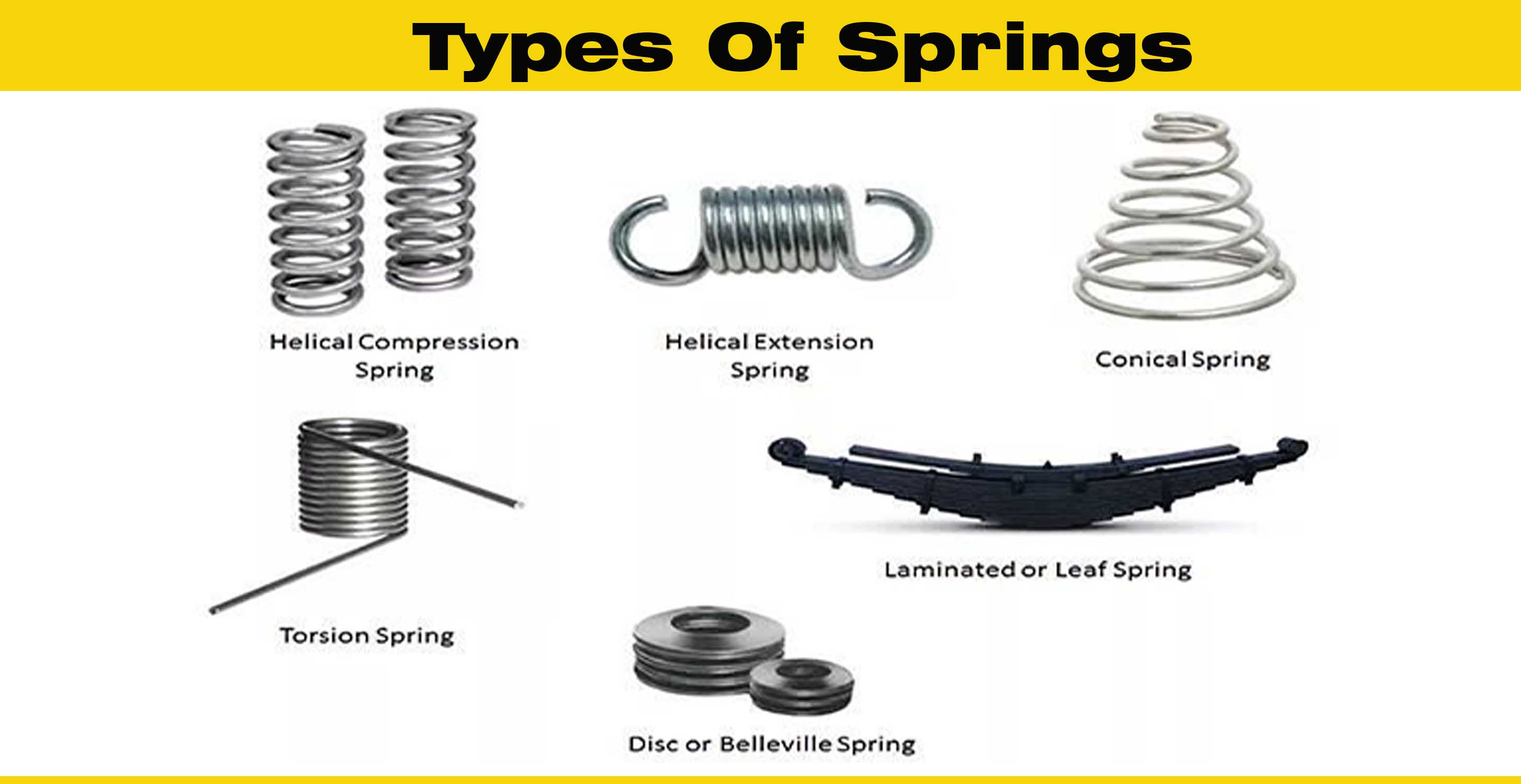
Types Of Springs Engineering Discoveries
The most common spring types include: Compression Springs Extension Springs Torsion Springs Constant Force Springs Belleville Springs Drawbar Springs Volute Springs Garter Springs Flat Springs Gas Springs Air Springs Compression Springs Compression springs are helically coiled wires designed to provide an opposing force when compressed.
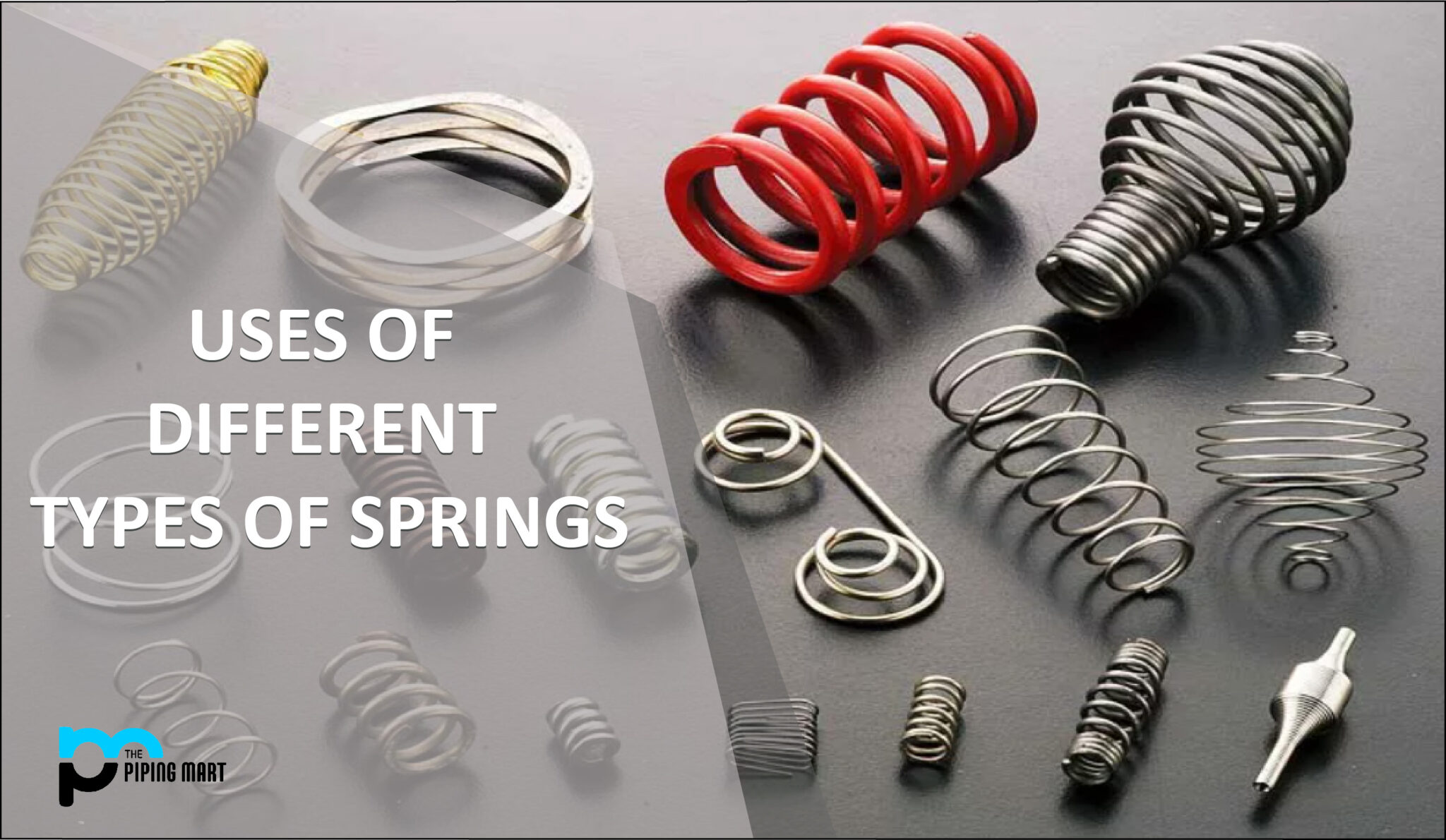
Different Types of Springs and Their Uses
Spring Types and Their Applications The most common way to classify springs is by how the load is applied to them. These are the most common classifications of springs: Compression springs: designed to operate with a compressive load. Found in shock absorbers, spring mattresses, mechanical pencils, and retractable pens.
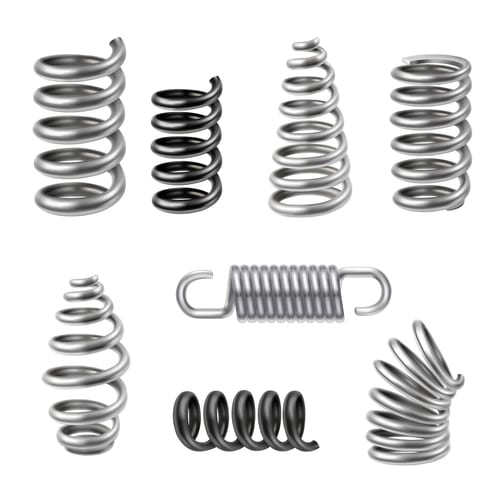
Learn More About the Types of Springs We Manufacture Custom Springs
19 Different Types of Springs By Jon Dykstra Update on December 15, 2022 Home Improvement Non-coiled springs have been used since time immemorial. The use of non-coiled spring on the bow and arrow is one of the earliest applications for spring technology.

Types of Springs and their Applications SMLease Design
Function of Springs-. Springs have a variety of applications and are made in various forms. The main functions of springs are: To absorb energy and to provide a cushion effect to shocks as in automobiles, railway carriages, seats of scooters, bicycles, aircraft landing gears, etc. To store and redistribute energy as in clock springs, and.

Springs Types and Uses
Natural Spring Definition, Formation & Types Lesson Transcript Author Emre Unal View bio Instructor Elizabeth Friedl View bio Learn about natural springs, their formation, and how they differ.
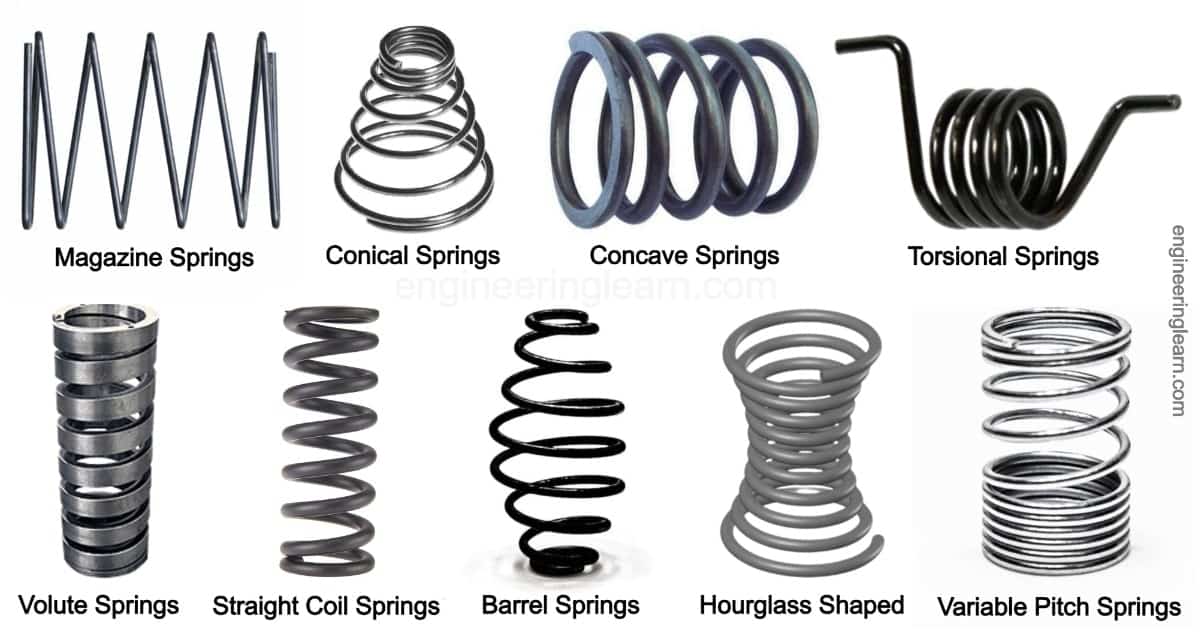
Compression Spring Types, Working, Uses, Parameters, Material, Design, Applications, Advantages
Torsion spring. Spiral spring. Compression Spring. Compression springs are a kind of open-coil helical spring that offers resistance to axial compression load. Usually, compression springs are coiled at constant diameter, but variable diameter shape like conical spring is also very widely used.
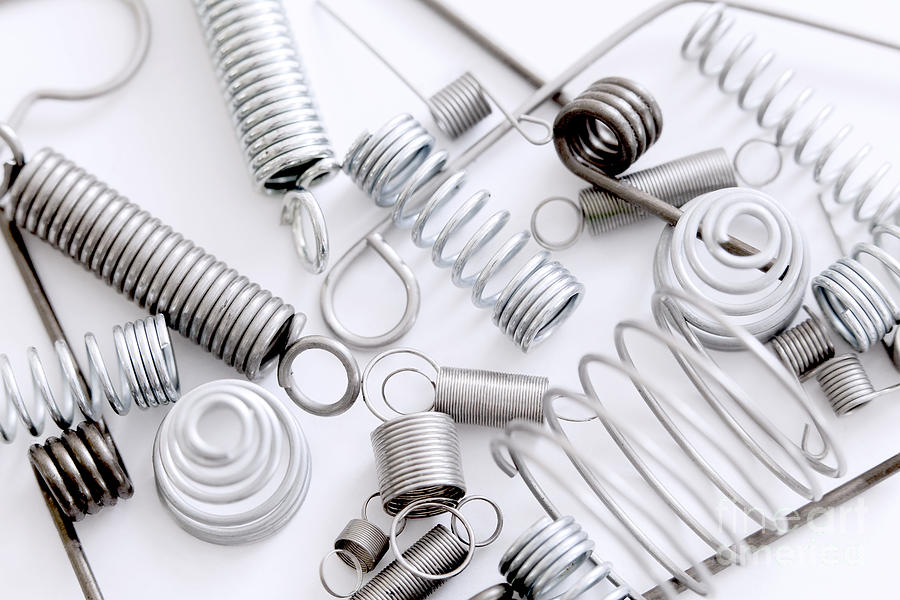
Various types of springs Photograph by B Christopher
Various classifications of springs have been proposed, based on different characteristics explained, of which the most common are discharge rate and uniformity; character of the hydraulic head creating the discharge; geologic and geomorphologic structure controlling the discharge; water quality and temperature. Previous chapter Next chapter 2.1.
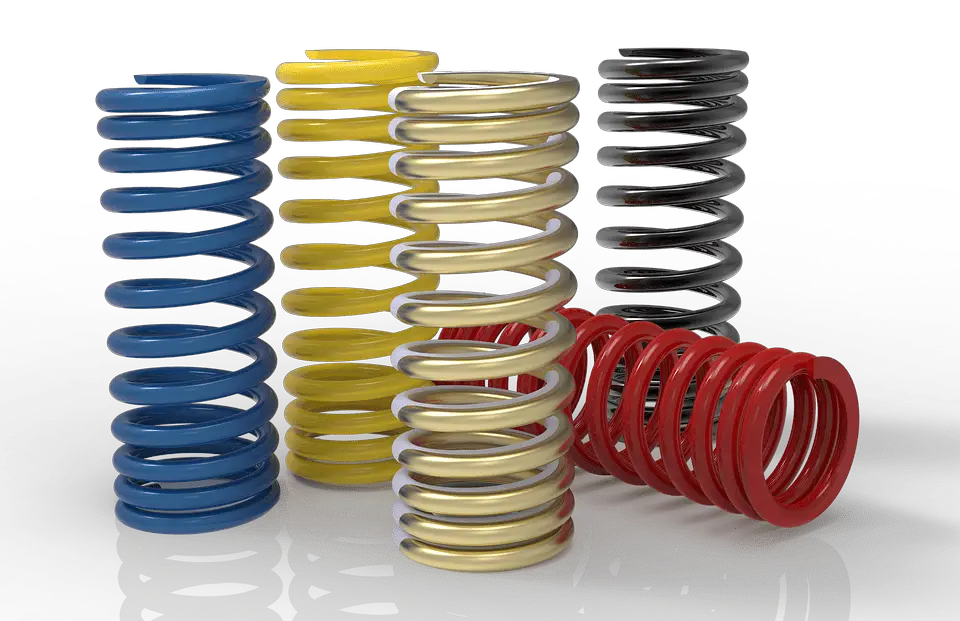
What is Spring? What are Types of Springs? Mech4study
We can classify springs according to their construction and line of action of applied force. Here is the list of most commonly used types of springs. Helical Springs. Tension Coil Spring. Compression Spring. Torsion Spring. Spiral Spring. Leaf Spring.
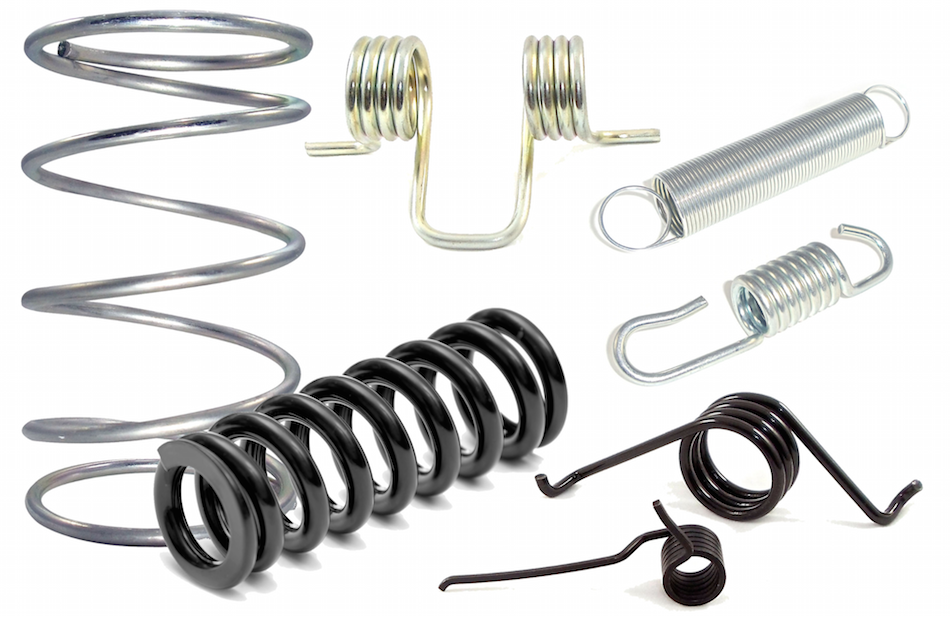
Types of Springs and their Applications An Overview Fictiv
The most common spring types include: Compression Springs Extension Springs Torsion Springs Constant Force Springs Belleville Springs Drawbar Springs Volute Springs Garter Springs Flat Springs Gas Springs Air Springs Types of Spring 1. Compression Springs

Different Types Of Springs Definition, Types and Applications [PDF]
July 29, 2022 Springs are mechanical components used in many products such as watches, automobiles, and cellphones. There are many types of springs, each with unique features making choosing difficult. Therefore, there is a need to know about them.

Different Types Of Springs Definition, Types and Applications [PDF]
A spring is a device consisting of an elastic but largely rigid material (typically metal) bent or molded into a form (especially a coil) that can return into shape after being compressed or extended. [1] Springs can store energy when compressed.

Types Of Springs Engineering Discoveries
Types of springs 1. Helical Springs 2. Conical and Volute Springs 3.Torsion Springs 4. Laminated Leaf Springs 5. Disc Springs or Belleville springs 6. Special Purpose Springs : Spring Materials Spring Design Terminology of Helical Springs 1. Spring index (C): 2. Solid length: 3. Free length: 4. Spring Rate OR Spring Stiffness : 5. Pitch:
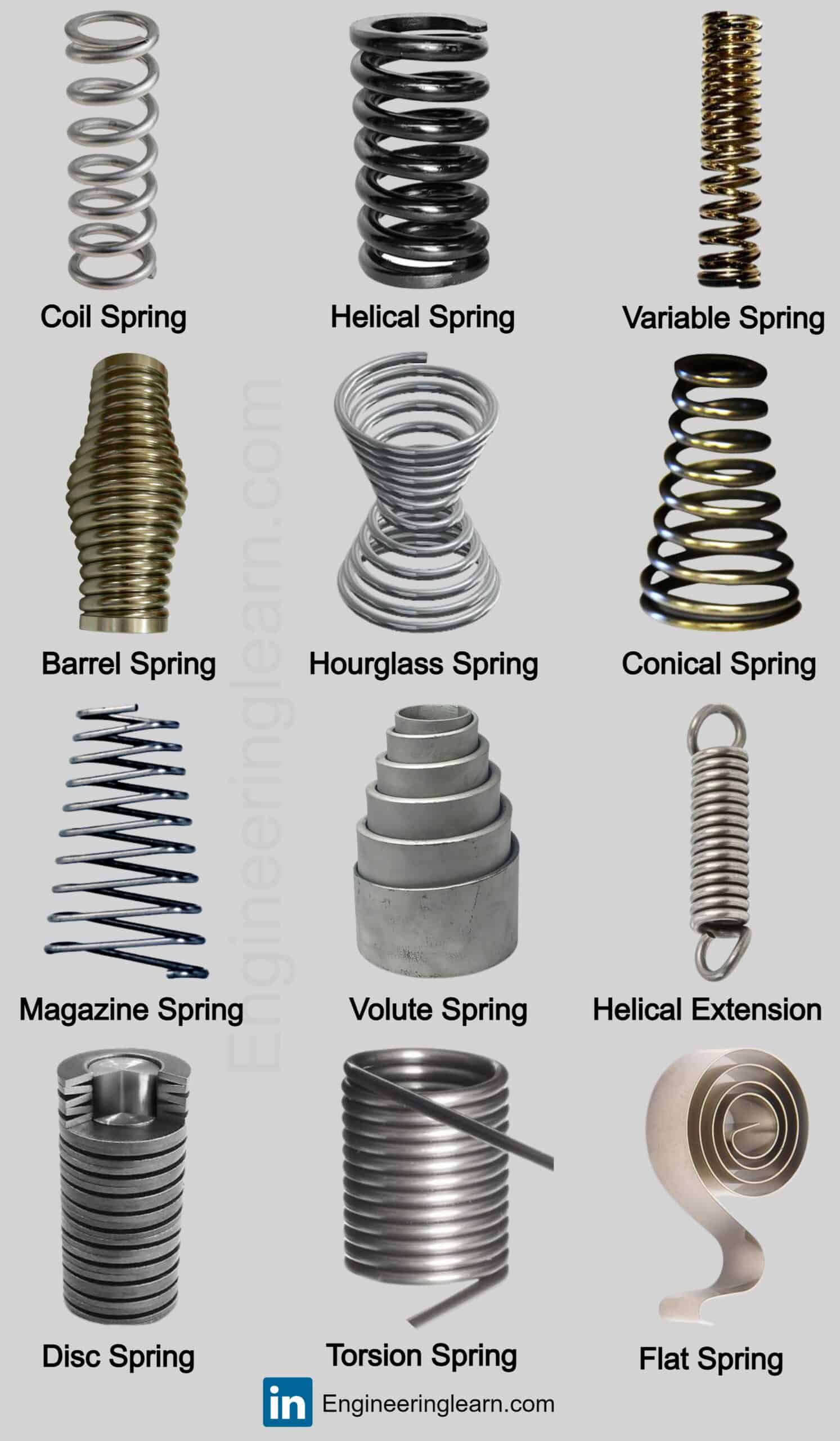
Types of Spring and Their Uses [with Pictures] Engineering Learn
Springs are mechanical devices that pull, push, support, lift, or protect, and some of the most commonly used mechanical assemblies incorporate springs in their design.This article will cover different types of springs, their use, and how each type operates in specific applications.. Basic Spring Principles . Springs are mechanical devices used to exert force; compressive, tensile, or torsion.
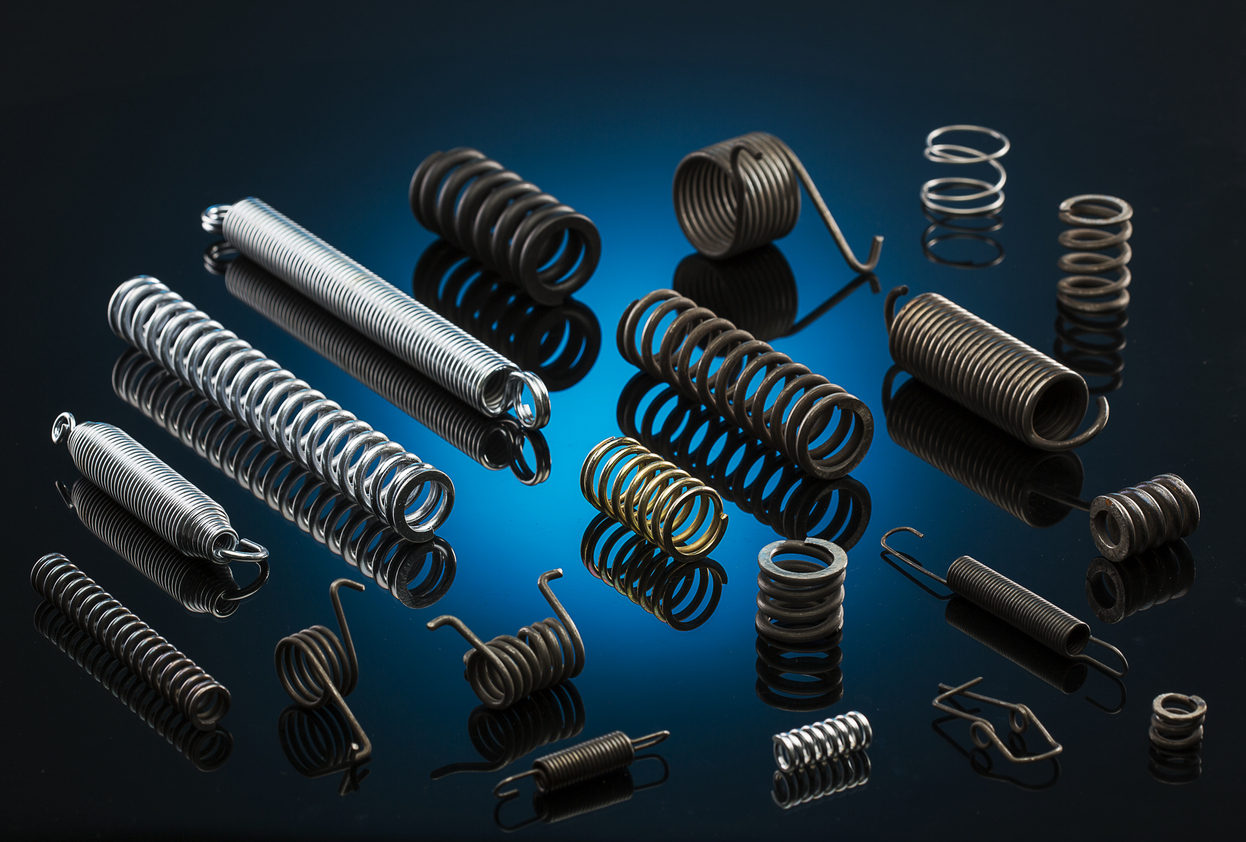
Spring Materials Information Airedale Springs
Linear Rate Spring: This is the most common type of spring. When a load is applied, it produces an opposing force with a constant rate of change. Variable Rate Spring: These types of springs produce a variable opposing force when compressed or extended. There are generally two types. A progressive-rate spring provides a smooth change in force.